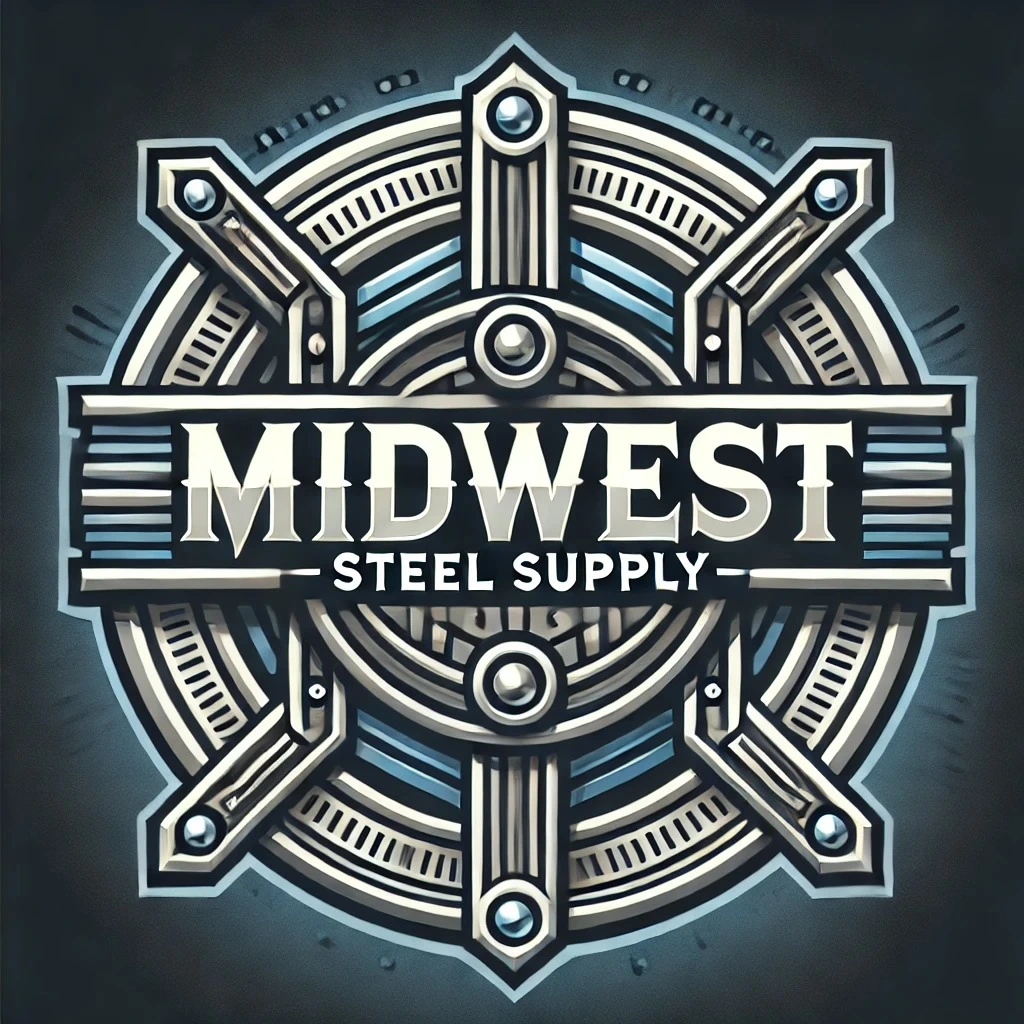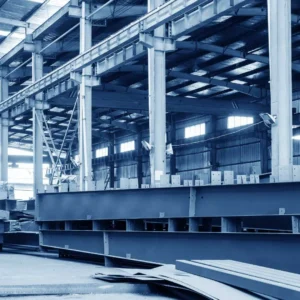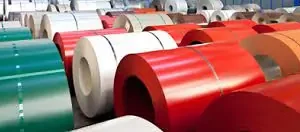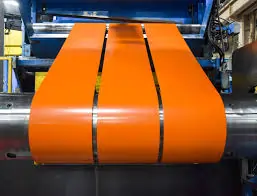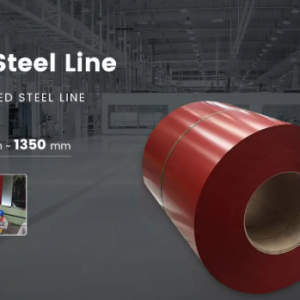Tin-Plated Steel Strip Coils: Specifications, Size Chart, and Applications
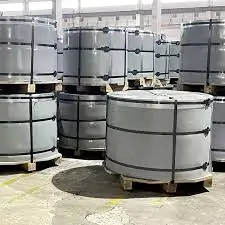
Tin-plated steel strip coils, also known as electrolytic tinplate (ETP), are cold-rolled, low-carbon steel sheets coated with a thin layer of tin through an electrolytic process. The tin layer enhances corrosion resistance, solderability, and decorative appeal, making it ideal for packaging, electronics, and consumer goods.
These coils combine the strength of steel with the non-reactive, food-safe properties of tin, making them an industry favorite for food and beverage cans, lids, crown caps, and specialized components.
Technical Specifications of Tin-Plated Steel Strip Coils
Base Material
The core of a tin-plated coil is cold-rolled low-carbon steel, produced with high dimensional accuracy and smooth surface finish. Common grades include:
-
SPCC – Standard commercial quality cold-rolled carbon steel
-
MR – Mild, highly corrosion-resistant grade for food applications
-
L – Low residual element grade for specialized packaging
Tin Coating
The tin coating is applied using an electrolytic plating process, ensuring uniform coverage and precise control over thickness.
-
Coating Weight Range: 1.0–11.2 g/m² per side (equivalent to approx. 0.1–1.2 μm thickness)
-
Coating Types: Equal coating (E/E), differential coating (D/E) for different functional sides
-
Benefits: Resistance to corrosion, excellent solderability, and improved appearance
Temper Grades
Temper grades define the hardness and mechanical properties of the steel after processing:
-
Single Reduced (SR): T1 (softest) to T5 (hardest)
-
Double Reduced (DR): DR8, DR9 for extra high strength and thin gauge requirements
Typical mechanical values:
-
Yield Strength: 260–550 MPa (depending on temper)
-
Tensile Strength: 300–650 MPa
Surface Finish Types
-
Bright – Smooth, reflective surface for decorative applications
-
Stone – Slightly textured for paint adhesion
-
Silver – Matte silver-gray appearance
-
Matte – Low gloss, often for printing or coating
Edge Condition
-
Mill Edge – Untrimmed as rolled
-
Slit Edge – Trimmed for precise width and safety
Standard Size Chart for Tin-Plated Steel Strip Coils
| Parameter | Range / Option |
|---|---|
| Thickness | 0.14 mm – 0.50 mm (common: 0.18, 0.20, 0.23, 0.28, 0.30 mm) |
| Width | 300 mm – 1,000 mm (slit widths available) |
| Coil Inner Diameter | 406 mm or 508 mm |
| Coil Outer Diameter | Up to 1,200 mm |
| Coil Weight | 3 – 10 metric tons |
| Coating Weight | 1.0 – 11.2 g/m² per side |
| Temper Grades | T1–T5, DR8, DR9 |
| Surface Finish | Bright, Stone, Silver, Matte |
Applications of Tin-Plated Steel Strip Coils
Food Packaging
Tinplate is widely used for cans, lids, and containers for processed food, beverages, and pet food due to its non-reactive nature and ability to preserve flavor and freshness.
Beverage Industry
Crown caps, twist-off caps, and pull tabs are typically made from tin-plated coils because of their strength and ability to maintain sealing properties under carbonation pressure.
Aerosol and Chemical Containers
Aerosol cans for paints, sprays, and personal care products rely on tinplate for structural integrity and resistance to corrosion from contents.
Electronics and Electrical Uses
In electronics, tinplate is used for shielding, battery casings, and connector parts due to its solderability and resistance to oxidation.
Decorative and Specialty Applications
Printed tins, promotional containers, and high-end gift boxes are often made with tinplate for both durability and visual appeal.
Advantages of Tin-Plated Steel Strip Coils
-
Corrosion Resistance – Tin protects the steel from rusting even in humid environments.
-
Non-Toxic and Food-Safe – Suitable for direct food contact when manufactured under industry standards.
-
Recyclable – Fully recyclable without loss of properties.
-
Formability – Can be stamped, drawn, and formed into complex shapes without losing coating integrity.
-
Excellent Printability – Accepts high-quality printing for branding and labeling.
Factors Affecting Tin-Plated Steel Coil Pricing
-
Steel Substrate Cost – Base cold-rolled steel price trends directly impact tinplate pricing.
-
Tin Metal Price – Tin is a relatively expensive metal; global tin market fluctuations influence cost.
-
Coating Weight – Heavier tin coating increases cost per ton.
-
Processing Type – Single-reduced vs. double-reduced production has different costs.
-
Order Size and Logistics – Bulk orders and proximity to mills reduce per-unit cost.
Market Trends and Outlook
Growing Packaging Demand
As the global demand for canned foods, beverages, and aerosol products rises, the tinplate industry is projected to grow steadily. The demand is especially strong in emerging markets in Asia, Africa, and the Middle East.
Lightweighting in Packaging
Manufacturers are producing thinner gauges (down to 0.14 mm) with double-reduced steel to reduce material use without compromising strength.
Eco-Friendly Push
Tinplate’s recyclability positions it as an environmentally friendly choice, appealing to markets moving away from single-use plastics.
Buying Considerations for Tin-Plated Steel Strip Coils
Choose the Right Temper
For deep-drawing applications like food cans, softer tempers (T1–T3) are ideal. For crown caps or high-strength parts, harder tempers (T4, T5, DR8) are recommended.
Select Appropriate Coating Weight
Higher coating weights are suited for aggressive environments or products with long shelf lives.
Confirm Surface Finish
For printing or painting, choose stone or matte finishes; for decorative use without printing, bright finishes may be best.
Check Coil Size Compatibility
Ensure coil width and thickness match your production equipment to avoid wastage and extra slitting costs.
Conclusion
Tin-plated steel strip coils are a versatile, high-performance material used in industries ranging from food packaging to electronics. By understanding the specifications, size options, and application needs, buyers can select the right coil for their projects while managing costs effectively.
In 2025, demand is expected to remain strong due to continued growth in packaged goods and increased focus on recyclable, sustainable materials. Selecting the correct temper grade, coating weight, and surface finish ensures product performance and cost efficiency, whether for mass-market cans or premium decorative containers.
